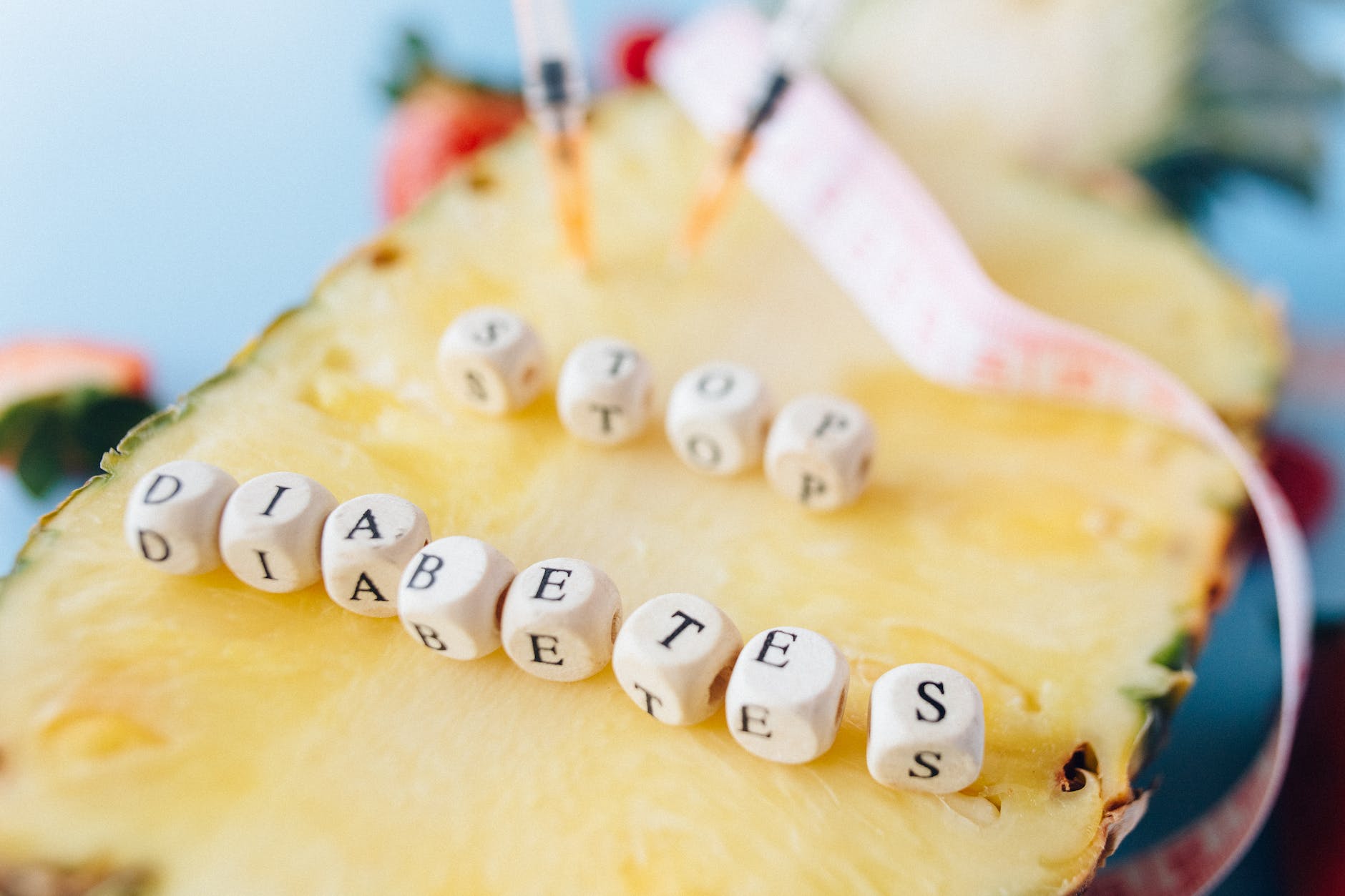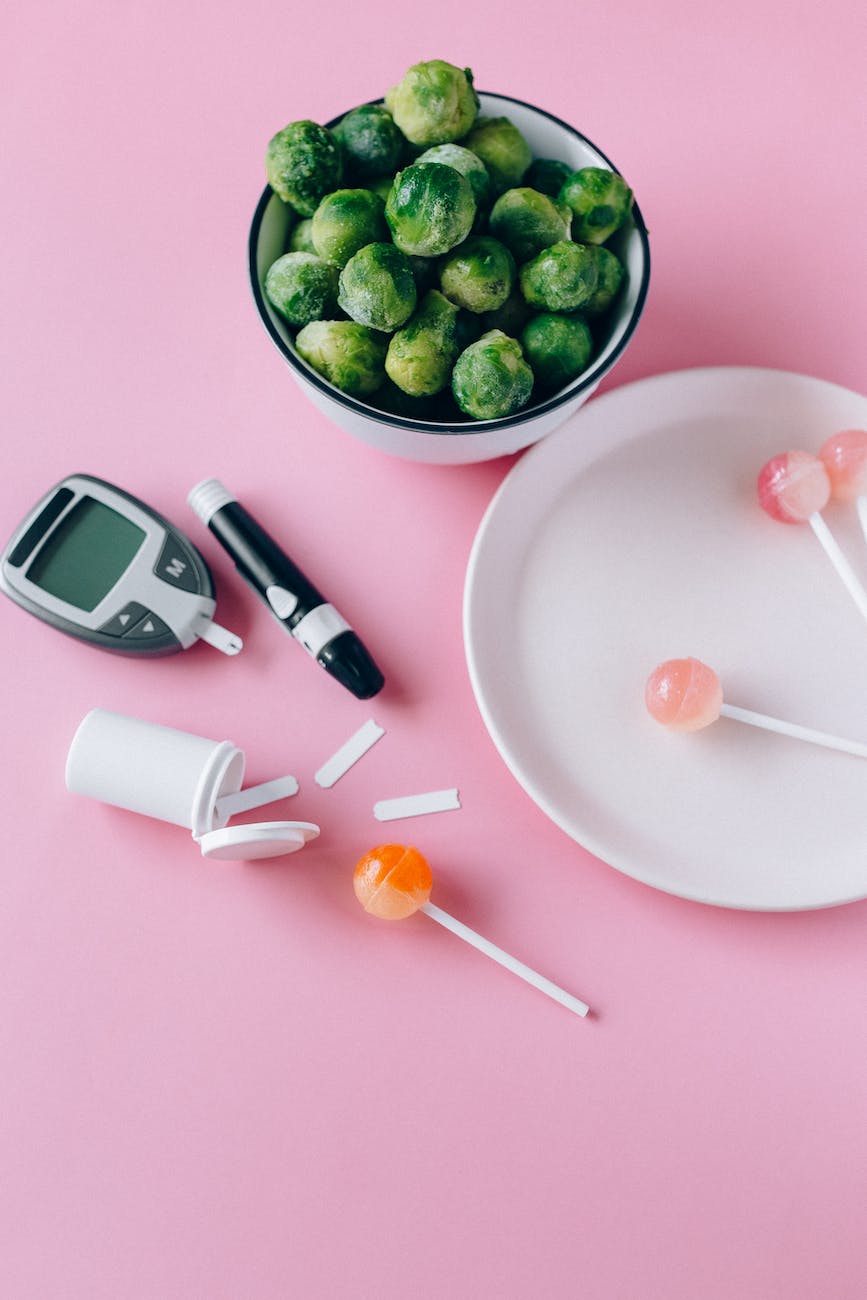Artificial Sweeteners for Diabetics


- Guide to Artificial Sweeteners for Diabetics: A Comprehensive Resource for Managing Diabetes
- Understanding Diabetes and Artificial Sweeteners
- Types of Artificial Sweeteners for Diabetics
- Impact of Artificial Sweeteners on Diabetes Management
- Debunking myths about Artificial Sweeteners for Diabetics
- Incorporating Artificial Sweeteners into a Healthy Diabetic Diet
- Tips for Choosing and Using Artificial Sweeteners
- Artificial Sweeteners and Overall Well-being
- FAQs about Artificial Sweeteners for Diabetics
- Latest Research and Developments in Artificial Sweeteners for Diabetics
Guide to Artificial Sweeteners for Diabetics: A Comprehensive Resource for Managing Diabetes
This article provides a comprehensive guide to artificial sweeteners for diabetics. It covers key topics such as the impact of diabetes on health, an introduction to artificial sweeteners, and different types available. The article also delves into the impact of artificial sweeteners on diabetes management, debunking myths, tips for incorporating them into a healthy diet, and their overall well-being. Additionally, it explores frequently asked questions and the latest research in this field. Stay informed on artificial sweeteners and their role in managing diabetes effectively.
Understanding Diabetes and Artificial Sweeteners


Overview of Diabetes and its Impact on Health
Diabetes is a chronic condition that affects the body's ability to regulate blood sugar levels. It can have significant implications for overall health and well-being. Understanding the basics of diabetes is crucial to effectively managing the condition.
Artificial Sweeteners: An Introduction
Artificial sweeteners are sugar substitutes that can provide sweetness without adding significant calories or affecting blood sugar levels. These substitutes are especially relevant for individuals with diabetes, as they can help satisfy the sweet tooth without causing a spike in blood glucose.
Types of Artificial Sweeteners for Diabetics


In this section, we will explore the different types of artificial sweeteners available for individuals with diabetes. You can categorize these sweeteners into two main groups: non-caloric artificial sweeteners and sugar alcohols. Let's delve into each category:
Non-Caloric Artificial Sweeteners
Non-caloric artificial sweeteners provide sweetness without adding significant calories or affecting blood sugar levels. They are a popular choice for diabetics looking to satisfy their sweet cravings while maintaining glucose control. Let's discuss two commonly used non-caloric artificial sweeteners:
Aspartame: A Popular Non-Caloric Option
Manufacturers widely use aspartame, a non-caloric sweetener that is about 200 times sweeter than sugar. You commonly find it in diet sodas, sugar-free chewing gum, and various other sugar-free products. Regulatory bodies like those in the U.S. consider aspartame safe for consumption. Food and Drug Administration (FDA) when used within acceptable daily intake limits.
Sucralose: Low-Calorie Alternative Worth Exploring
Sucralose is another popular non-caloric artificial sweetener that is approximately 600 times sweeter than sugar. It is heat-stable, making it suitable for use in cooking and baking. You can commonly find sucralose in various food and beverage products labeled as 'sugar-free' or 'diet.' Regulatory authorities have deemed it safe for consumption.
Sugar Alcohols: A Safe Bet for Blood Sugar Control
Sugar alcohols, also referred to as polyols, are sweeteners that occur naturally in certain fruits and vegetables. People often use them as alternatives to sugar because of their lower calorie content and minimal impact on blood sugar levels. Let's explore two common sugar alcohols:
Xylitol: Dental and Blood Sugar Benefits
Xylitol is a sugar alcohol that provides sweetness similar to sugar but with fewer calories. People know it for its dental health benefits, as it can help lower the risk of tooth decay. Xylitol has a minimal impact on blood sugar levels, making it suitable for individuals with diabetes when consumed in moderation.
Erythritol: The Low-Calorie Sweetener
Erythritol is a sugar alcohol with a similar sweetness profile to sugar. It has very few calories and doesn't significantly affect blood sugar levels. Most individuals tolerate erythritol well, and manufacturers commonly use it in a variety of sugar-free or reduced-sugar products.
Understanding the different types of artificial sweeteners available for diabetics is essential for making informed choices about managing blood sugar levels while enjoying sweet flavors. Remember to consult with your healthcare provider to determine the most suitable options for your specific dietary needs and health condition.
Impact of Artificial Sweeteners on Diabetes Management


Blood Glucose Management with Artificial Sweeteners
Artificial sweeteners play a crucial role in managing blood glucose levels for individuals with diabetes. These sweeteners provide a desirable taste without significantly affecting blood sugar levels, making them an excellent alternative to traditional sugar. Studies have shown that artificial sweeteners do not raise blood glucose levels, allowing people with diabetes to enjoy sweet flavors while maintaining stable glycemic control.
The Effect of Artificial Sweeteners on Blood Sugar Levels
Artificial sweeteners, such as aspartame and sucralose, have a minimal impact on blood sugar levels due to their non-caloric nature. Unlike regular sugar, the body does not break them down into glucose during digestion, so they have negligible effects on blood glucose. This makes artificial sweeteners an advantageous choice for people with diabetes who need to monitor and control their sugar intake.
Glycemic Index and Artificial Sweeteners
Artificial sweeteners have a low glycemic index, which measures the impact of carbohydrate-containing foods on blood sugar levels. Since artificial sweeteners have minimal or no carbohydrates, they do not cause significant increases in blood glucose levels, making them suitable for diabetes management. You can incorporate them into a diabetic diet without causing spikes in blood sugar.
Artificial Sweeteners and Insulin Sensitivity
Insulin sensitivity is crucial for individuals with diabetes, as it determines how effectively the body utilizes insulin to regulate blood sugar. Artificial sweeteners have shown no negative impact on insulin sensitivity, allowing individuals with diabetes to incorporate them into their meal plans without concerns about insulin resistance or reduced responsiveness to insulin.
How Artificial Sweeteners Affect Insulin Production and Sensitivity
Research suggests that artificial sweeteners do not stimulate insulin production or affect insulin sensitivity. Since they do not contain carbohydrates, they do not initiate the release of insulin from the pancreas. This makes artificial sweeteners a safe and effective option for people with diabetes who need to manage their insulin levels.
Artificial Sweeteners and Weight Management
Weight management is crucial for individuals with diabetes, as excess weight can contribute to insulin resistance and poor blood sugar control. Artificial sweeteners offer a way to reduce calorie intake without sacrificing sweetness, as they have little to no calories. Incorporating artificial sweeteners into a balanced diet can assist in weight management and overall diabetes control.
Debunking myths about Artificial Sweeteners for Diabetics


Debunking common myths surrounding artificial sweeteners is essential for individuals managing diabetes. Let's explore two key aspects related to these misconceptions:
Artificial Sweeteners and their Impact on Carbohydrate Intake
Contrary to popular belief, artificial sweeteners do not contribute to carbohydrate intake. Designers created them to deliver sweetness without adding significant calories, making them good alternatives for diabetics who aim to control blood sugar levels and manage weight. It is important to remember that although artificial sweeteners can replace sugar, a well-balanced diet is still crucial in maintaining overall health.
Health Concerns and Controversies Surrounding Artificial Sweeteners
Various health concerns have arisen regarding the consumption of artificial sweeteners. However, scientific research shows that artificial sweeteners are safe for individuals with diabetes when consumed within acceptable daily intake levels. Studies have shown no direct link between artificial sweeteners and cancer, neurological disorders, or other serious health issues. Nevertheless, if you have any specific health concerns, consult with your healthcare provider for personalized guidance.
In summary, debunking myths about artificial sweeteners empowers individuals with accurate information to make informed choices about their dietary habits. Understanding the impact of carbohydrate intake and addressing health concerns surrounding artificial sweeteners can help individuals effectively manage their diabetes while enjoying sweet flavors without compromising their overall well-being.
- Artificial Sweeteners and their Impact on Carbohydrate Intake
- Health Concerns and Controversies Surrounding Artificial Sweeteners
Incorporating Artificial Sweeteners into a Healthy Diabetic Diet


When it comes to managing diabetes, incorporating artificial sweeteners into your diet can be a helpful strategy. Here, we will discuss safe consumption levels and recommendations, as well as ways to use artificial sweeteners in cooking and baking.
Safe Consumption Levels and Recommendations
It is important to consume artificial sweeteners in moderation and adhere to recommended guidelines. Here are some key points to keep in mind:
- Refer to the recommended daily intake provided by regulatory authorities such as the FDA or the American Diabetes Association.
- Read food labels carefully to determine the amount of artificial sweeteners present in packaged products.
- Consult with a healthcare professional or registered dietitian to establish a safe and suitable consumption level for your individual needs.
- Remember that it is still essential to maintain a balanced and varied diet that includes other nutrients.
Artificial Sweeteners in Cooking and Baking
Using artificial sweeteners in cooking and baking can be a great way to enjoy your favorite recipes while managing your blood sugar levels. Consider the following tips:
- Experiment with different artificial sweeteners to find the one that best suits your taste preferences.
- Keep in mind that artificial sweeteners may have different properties than sugar, such as differences in texture or the ability to caramelize.
- Adapt recipes by replacing sugar with the appropriate amount of artificial sweetener, following conversion charts or guidance from the sweetener manufacturer.
- Be aware that excessive heat can affect the sweetness of some artificial sweeteners, so adjust accordingly.
Remember to consult reliable sources, such as reputable cooking websites or diabetes-specific resources, for detailed recipes and recommendations when using artificial sweeteners in cooking and baking.
By incorporating artificial sweeteners into a healthy diabetic diet, you can enjoy sweetness while effectively managing your blood sugar levels. Remember to consume them in moderation, follow recommended guidelines, and experiment with different options to find what works best for you.
Tips for Choosing and Using Artificial Sweeteners


Reading Food Labels: Identifying Artificial Sweeteners
When it comes to choosing artificial sweeteners, reading food labels is key. Look for ingredients such as aspartame, sucralose, xylitol, or erythritol. Various food products commonly use these artificial sweeteners.
Look carefully at how the list arranges the sweeteners. The higher up on the ingredient list, the more significant their presence in the product. Be aware of hidden sugars or other names for sweeteners, such as high-fructose corn syrup, maltodextrin, or glucose.
Adapting Recipes and Measuring Artificial Sweeteners
When using artificial sweeteners in recipes, it's essential to adapt and measure them correctly. Consider the sweetness potency of different sweeteners to achieve the desired taste. Keep in mind that some artificial sweeteners are sweeter than sugar, so adjustments may be necessary.
Follow recommended conversion charts or guides to substitute artificial sweeteners for sugar. It's also helpful to consider the texture and moisture effects that sweeteners might have on baked goods. Experiment with different ratios and baking techniques to maintain the desired texture.
- Choose artificial sweeteners: Aspartame, sucralose, xylitol, or erythritol.
- Check ingredient lists: Look for hidden sugars or alternative names for sweeteners.
- Adapt recipes: Consider sweetness potency and adjust ratios accordingly.
- Measure accurately: Follow conversion charts and consider texture effects on baked goods.
By understanding how to read food labels and adapt recipes, you can confidently utilize artificial sweeteners in your diabetic-friendly diet.
Artificial Sweeteners and Overall Well-being


Artificial sweeteners not only play a crucial role in managing diabetes but also have an impact on overall well-being. Understanding how these sweeteners affect dental health and blood pressure is essential for individuals with diabetes:
Artificial Sweeteners and Dental Health
Artificial sweeteners, such as xylitol, can benefit dental health by reducing the risk of tooth decay. Xylitol inhibits the growth of bacteria in the mouth, preventing them from producing harmful acids. Incorporating xylitol-sweetened products into your diet, such as chewing gum or toothpaste, can contribute to better oral health.
Artificial Sweeteners and Blood Pressure
Research suggests that artificial sweeteners have a minimal effect on blood pressure. Unlike sugar, artificial sweeteners do not cause the same blood pressure spikes. However, moderation is still key, and individuals with diabetes should follow a balanced diet and lifestyle to maintain healthy blood pressure levels.
By prioritizing dental health and monitoring blood pressure, individuals with diabetes can enhance their overall well-being while incorporating artificial sweeteners into their diet.
FAQs about Artificial Sweeteners for Diabetics


Find answers to commonly asked questions regarding artificial sweeteners and their impact on individuals with diabetes.
Can Artificial Sweeteners spike Blood Sugar Levels?
Artificial sweeteners are typically non-caloric or low-calorie alternatives to sugar, making them suitable options for individuals with diabetes. The body metabolizes them differently or doesn't metabolize them at all, so they don't significantly raise blood sugar levels. However, it's important to choose artificial sweeteners that are suitable for your specific health needs and to consume them in moderation.
Are Artificial Sweeteners safe for individuals with Diabetes?
Yes, most experts generally consider artificial sweeteners safe for individuals with diabetes. Researchers have conducted extensive studies to evaluate their safety, and organizations like the Food and Drug Administration (FDA) have given their approval for consumption. However, you should always consult your healthcare provider to determine the best dietary choices for your individual needs.
Can Artificial Sweeteners hinder Weight Loss efforts?
Artificial sweeteners can be beneficial for weight management as they provide sweetness without adding a significant number of calories. Incorporating them into a balanced diet and maintaining an overall healthy lifestyle can support weight loss efforts. However, it's essential to be mindful of your overall caloric intake and not solely rely on artificial sweeteners as a solution for weight loss.
Are there any side effects of consuming Artificial Sweeteners?
For most individuals, consuming artificial sweeteners in moderation does not pose any significant side effects. However, some people may experience gastrointestinal discomfort or laxative effects when consuming sugar alcohols, such as xylitol or erythritol. It's important to read food labels carefully, be aware of personal sensitivities, and consult with a healthcare professional if you experience any adverse reactions.
Stay informed about artificial sweeteners and their impact on diabetes management to make educated choices for your dietary needs.
Latest Research and Developments in Artificial Sweeteners for Diabetics


Stay up to date with the latest research and developments in the field of artificial sweeteners for diabetics. This section explores promising studies, new findings, and future directions that are shaping the understanding and use of artificial sweeteners in diabetes management.
Promising Studies and New Findings
- Recent research suggests that certain artificial sweeteners, such as stevia and monk fruit extract, may have positive effects on blood glucose control and insulin sensitivity. These natural sweeteners are gaining attention for their potential role in managing diabetes.
- Studies have shown that artificial sweeteners do not significantly raise blood sugar levels, making them viable alternatives to sugar for diabetics. This finding is particularly beneficial for those seeking to satisfy their sweet tooth without affecting their blood glucose levels.
- New findings indicate that artificial sweeteners, when consumed in moderation as part of a healthy diet, can aid in weight management for individuals with diabetes. They provide a low-calorie option that can help reduce caloric intake and support weight loss efforts.
Future Directions in Artificial Sweeteners Research
- Researchers are exploring the potential use of artificial sweeteners in personalized nutrition plans for individuals with diabetes. Tailoring sweetener choices based on an individual's metabolic and genetic profile may optimize blood sugar control and overall health outcomes.
- Technological advancements are integrating with glucose monitoring devices and artificial sweeteners to create innovative products. These products offer real-time feedback on blood glucose levels and help people make informed dietary choices.
- Further studies are underway to assess the long-term effects of artificial sweeteners on health outcomes, including their impact on gut microbiota, immune function, and metabolic health. These findings will contribute to a more comprehensive understanding of their role in diabetes management.
Our top advice is to consult professionals for revolutionary diabetes guidance to drastically improve your health.
Visit at this time the link that keeps clicking on it


